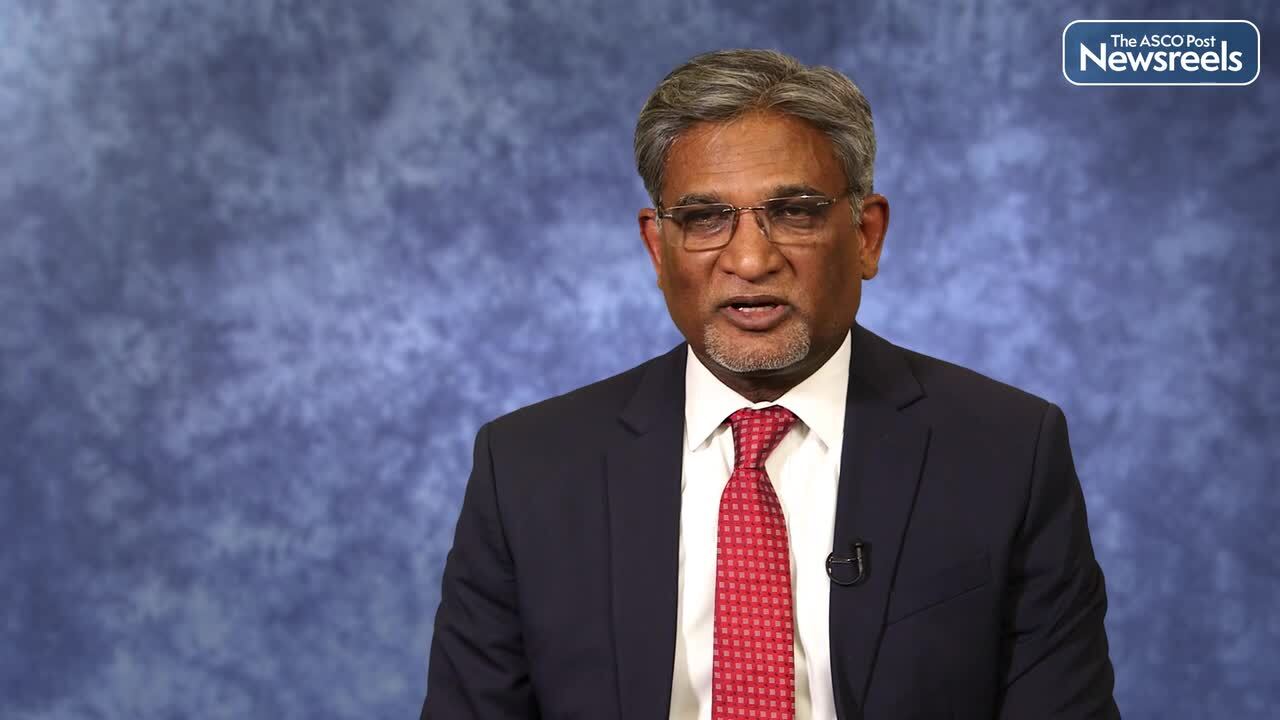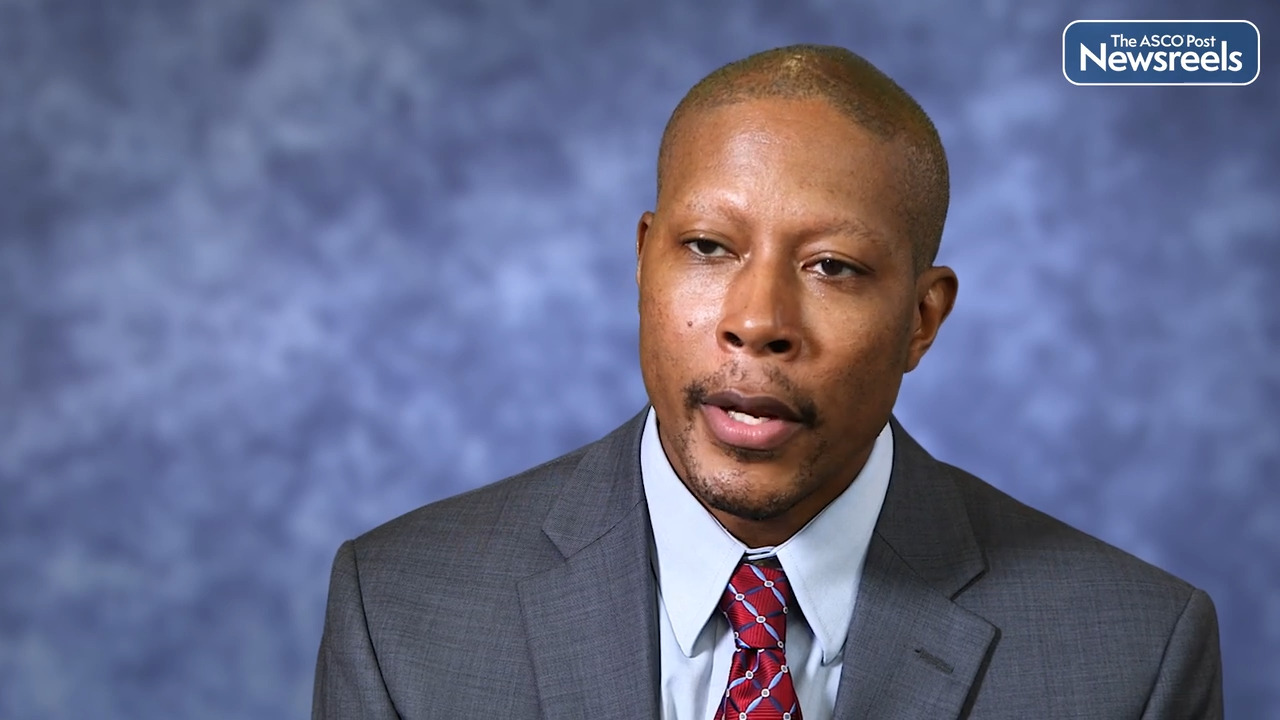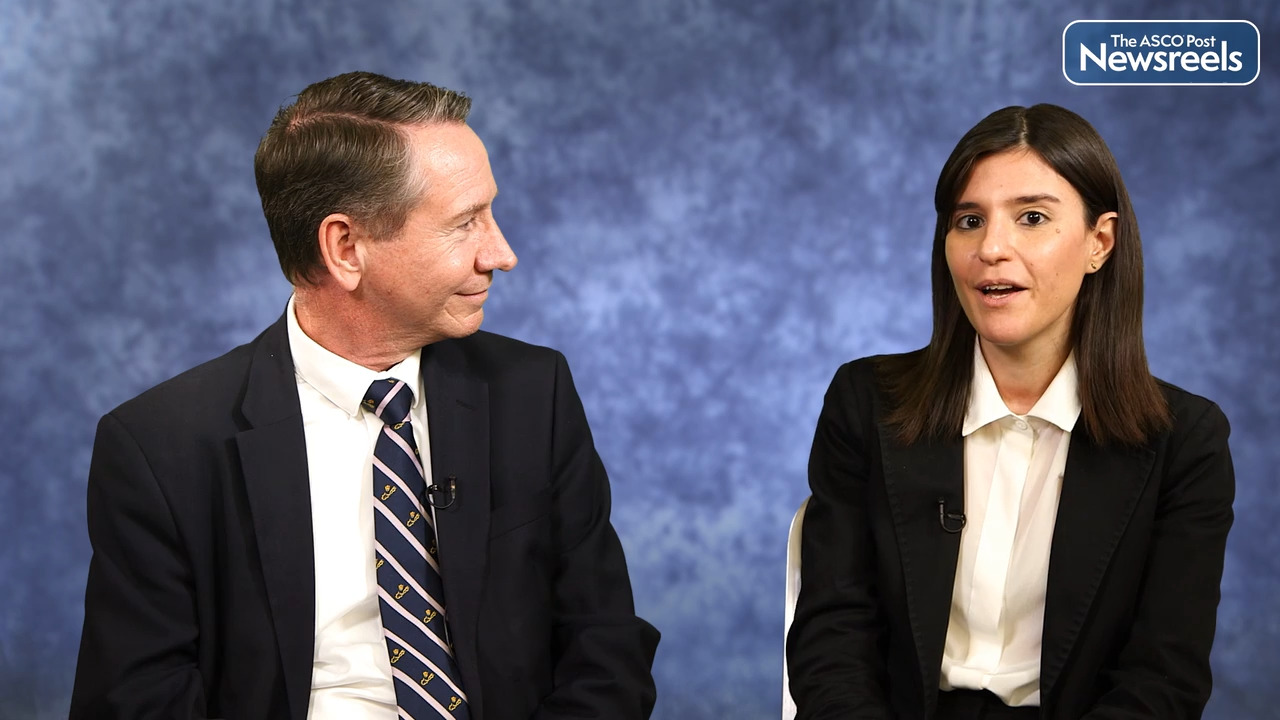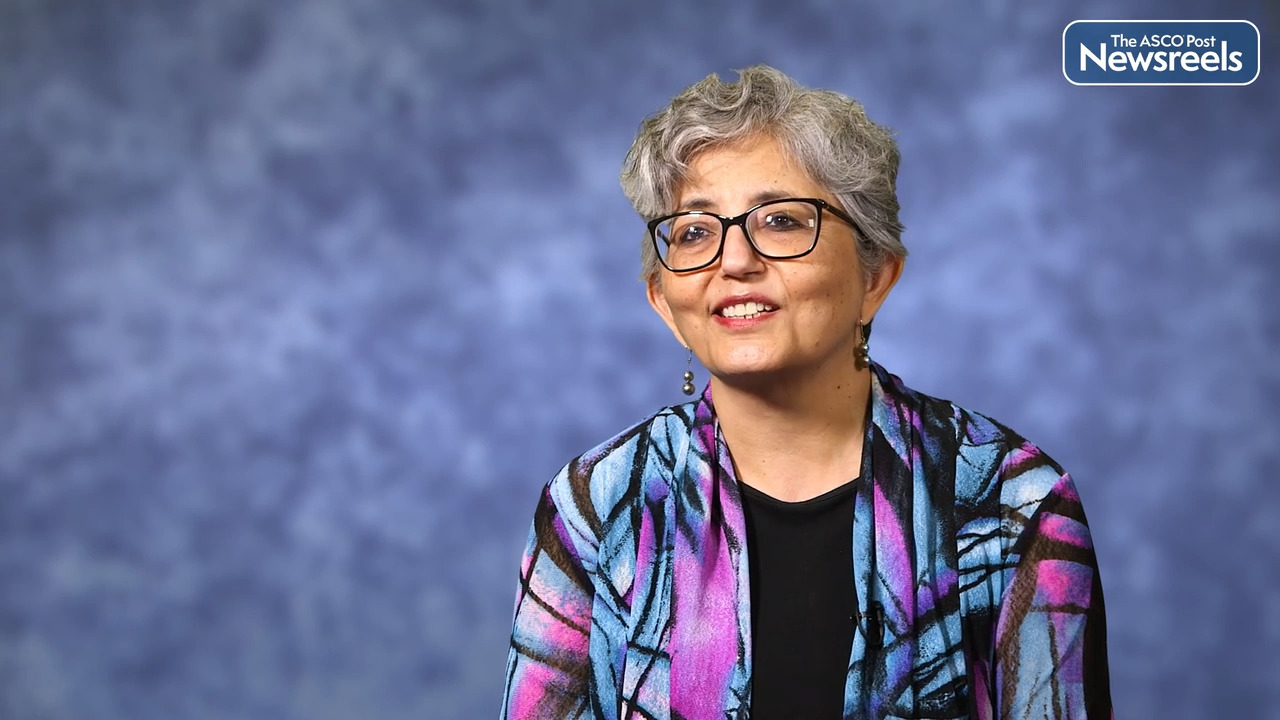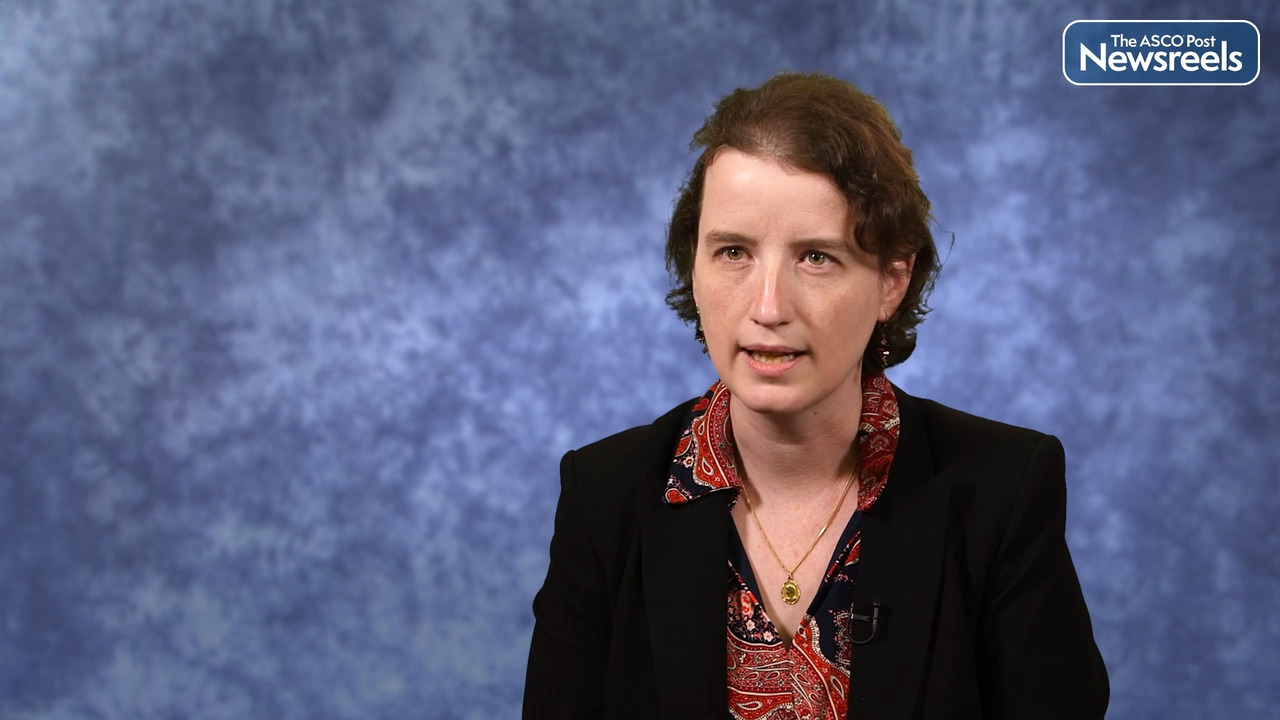Transcript
Disclaimer: This video transcript has not been proofread or edited and may contain errors.
In this study, we looked at vodobatinib, a new tyrosine kinase inhibitor. It's an ATP competitive inhibitor of Bcr-Abl in patients that had refractory or relapsed chronic myeloid leukemia. This study is a phase one study where we had a dose escalation part and then a dose expansion part. We are combining both the dose escalation and the dose expansion cohort for this analysis, and the analysis is focused specifically on the efficacy and safety. According to the number of tyrosine kinase inhibitors that the patients had received previously. The design required that patients had received at least three prior TKIs or were unable to receive an additional TKI for whatever reason. We divided the cohorts into those that had received two or fewer tyrosine kinase inhibitors previously, or who had received three or more prior tyrosine kinase inhibitors. We also looked specifically at patients that had received prior ponatinib. Most of them were in the three TKI priors, and we even have a handful of patients, three, that had received prior asciminib.
What we found on these analysis is that vodobatinib is very effective. We had a very high rate of major cytogenetic response, and it's very similar between the patients with the two or less TKIs previously and the three or more TKIs previously, approximately a 40% response rate in both arms. That includes the patients that had received prior ponatinib, but it was a little over 40% in those patients. Very importantly, major molecular response was seen in approximately 50% of patients, including a little over 50% of patients who had received the prior ponatinib. One of the patients that had received asciminib, who also had received ponatinib, also achieved a complete cytogenetic response. High levels of response, durable responses, and it reflects on a very good overall survival of more than 60% at three years.
The safety profile was very favorable. Some diarrhea, but very little in terms of grade three toxicity, and very importantly, we really did not see any arterial occlusive events of significance. There were really a very low rate of items, and most of these were just like cold hands and very little. No concerns about the arterial occlusive events, perhaps because it's a very selective drug. It does not have VGF receptor inhibition, it doesn't have PDGF receptor inhibition, so it's a very selective, and it reflects in the safety.
What we conclude from this analysis is that the drug is a very good agent that has good levels of efficacy in both patients that have received two or fewer tyrosine kinase inhibitors and three or more, including patients that had received prior ponatinib with a very good safety profile. That's important because there's an ongoing pivotal study for patients that have received three or more tyrosine kinase inhibitors, including ponatinib. It's enrolling, but it offers a good option for those patients who otherwise may not have too many other treatment alternatives.
